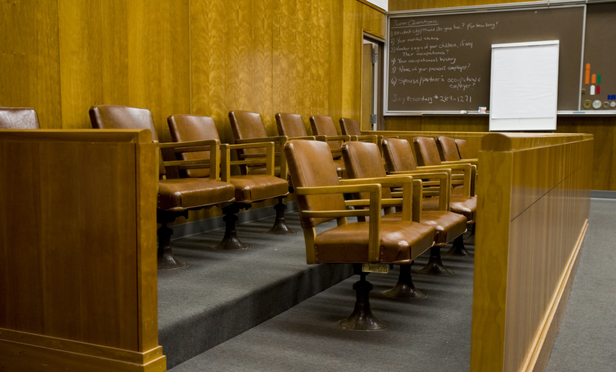Jury secrecy is considered sacrosanct, as is a criminal defendant’s right to an impartial panel. In a petition filed with the U.S. Supreme Court, a convicted murderer is asking the justices what should guide a judge in a criminal trial who investigates jurors’ claims that a possible holdout refuses to deliberate.
It’s not exactly the classic movie “12 Angry Men,” but Miguel Gonzalez says he believes his trial judge’s dismissal of a holdout juror—accused by fellow jurors of failing to deliberate—meant the difference between conviction and acquittal, or, at the least, the loss of a mistrial. And, the petition contends, it violated his Sixth Amendment right to an impartial jury.
This content has been archived. It is available through our partners, LexisNexis® and Bloomberg Law.
To view this content, please continue to their sites.
Not a Lexis Subscriber?
Subscribe Now
Not a Bloomberg Law Subscriber?
Subscribe Now
LexisNexis® and Bloomberg Law are third party online distributors of the broad collection of current and archived versions of ALM's legal news publications. LexisNexis® and Bloomberg Law customers are able to access and use ALM's content, including content from the National Law Journal, The American Lawyer, Legaltech News, The New York Law Journal, and Corporate Counsel, as well as other sources of legal information.
For questions call 1-877-256-2472 or contact us at [email protected]



